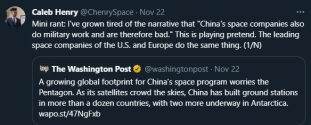NATO urges members to get their logistics homework done
BRUSSELS, Nov 23 (Reuters) - NATO has warned its members that too much red tape is hindering troop movements across Europe, a problem that could cause major delays were a conflict with Russia to erupt.
"We are running out of time. What we don't get done in peacetime won't be ready in case of a crisis or a war," the chief of NATO's logistics command JSEC, Lieutenant-General Alexander Sollfrank, told Reuters in an interview published on Thursday.
NATO's Joint Support and Enabling Command (JSEC) in the southern German town of Ulm started operating in 2021. Its job is to coordinate the swift movement of troops and tanks across the continent as well as logistical preparations such as the storage of munitions on the alliance's eastern flank.
A result of Moscow's invasion of Ukraine in 2014, the creation of JSEC reflected the assessment that NATO, after decades of detente following the Cold War, once again needed to be ready for a war in Europe that could break out at any time.
However, the task of quickly deploying forces up to a size of a division with some 20,000 troops, as well as having ammunition, fuel, spare parts and provisions in place, has become trickier since the Cold War.
While NATO and Warsaw Pact troops in the past faced each other mainly in Germany, the alliance has since expanded some 1,000 kilometres (600 miles) to the east, multiplying the length of NATO's eastern flank to some 4,000 kilometres in total.
"The expanse of space, the fact that not all forces are forward-based - all this means that the alliance has to be quick in moving troops from their bases to the right spot on the eastern flank," Sollfrank noted, adding this needed preparation.
"At the heyday of the war in Ukraine, Russia fired 50,000 artillery shells per day. These rounds have to reach the howitzers," he said. "So you have to set up warehouses - for ammunition, fuel, spare parts and provisions."
As it is, NATO forces have to navigate a variety of national regulations, stretching from the advance-notice required before ammunition can be shipped to the permissible length of military convoys and disease prophylaxis.
"We have a surplus of regulations, but the one thing we don't have is time," warned Admiral Rob Bauer, head of NATO's military committee. "Russia's war against Ukraine has proven to be a war of attrition – and a war of attrition is a battle of logistics."
Sollfrank said he would like to see a "military Schengen", an area of free military passage akin to the political Schengen zone that allows free movement within most of the EU.
NATO must not prompt a miscalculation in the Kremlin by giving the impression Moscow might stand a chance to win because the alliance is not prepared, he warned.
"We need to be ahead of the curve. We have to prepare the theatre well before Article 5 has been invoked", he said, referring to NATO's collective defence clause which effectively puts the alliance at war.




